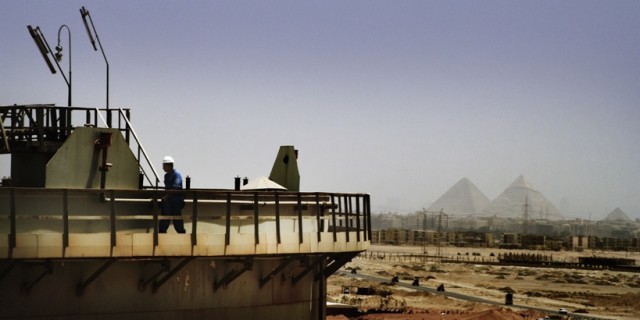
The APA-Sinopec joint venture have reached a new production-sharing contract (PSC) in Egypt, which will see more drilling carried out – and more cash returned to the companies.
The agreement links 90% of the venture’s production into a single concession and extends development lease terms for 20 years.
The group will increase gross spending by around $235 million in Egypt in 2022. As such, production should rise by 13-15% year on year.
“This agreement is a win-win for Egypt and the APA-Sinopec joint venture,” said APA CEO and president John Christmann. “The modernised PSC incentivises increased investment and production growth and places Egypt at the top of many attractive investment opportunities in APA’s global portfolio. It also reinforces Egypt’s commitment to responsible economic development and public-private partnerships.”
Christmann noted that the venture had increased drilling rigs in the country from five to 11 since the beginning of 2021. More will come, he said, driving oil production growth. The venture plans to increase rigs to 15 in 2022.
“Looking ahead, we will be implementing a number of impactful ESG initiatives aligned with our focus areas of air, water, communities and people,” the CEO said. The joint venture agreed to a signature bonus of $100mn.
Egyptian President Abdel Fattah al-Sisi signed the modernised PSC on December 27. This brought into force the agreement with the Ministry of Petroleum and the Egyptian General Petroleum Corp. (EGPC).
The new agreement is retroactively dated to April 1, 2021. Oil minister Tarek El Molla, EGPC and the company have all signed.
In the details
Under the previous deal, the cost recovery system ranged from 25% to 40%, while profit was 60-75%. The new PSC sees cost recovery increased, to a fixed 40%, while freezing profit at 60%. Of the profit, 70% goes to EGPC and 30% to APA-Sinopec.
The joint venture will also be allowed to recover nearly $900mn of backlogged costs over a five-year period, starting in April 2021.
The venture expects that well completions will roughly triple in 2022 from 2021. The agreement increases proved reserves by 25%.
Based on a $72 barrel Brent price, APA-Sinopec should generate $850-900mn in free cash flow.
A presentation from APA revealed that a number of concessions were in backlog and not recovering historical costs. As a result, the venture did not invest in some potential projects because of a risk of “trapped costs”.
Now, APA said, nearly all in-country costs are eligible for recovery. A single “cost pool” gives access to what had been trapped costs. The new concession should not generate backlogged costs if Brent remains above $45 per barrel.
